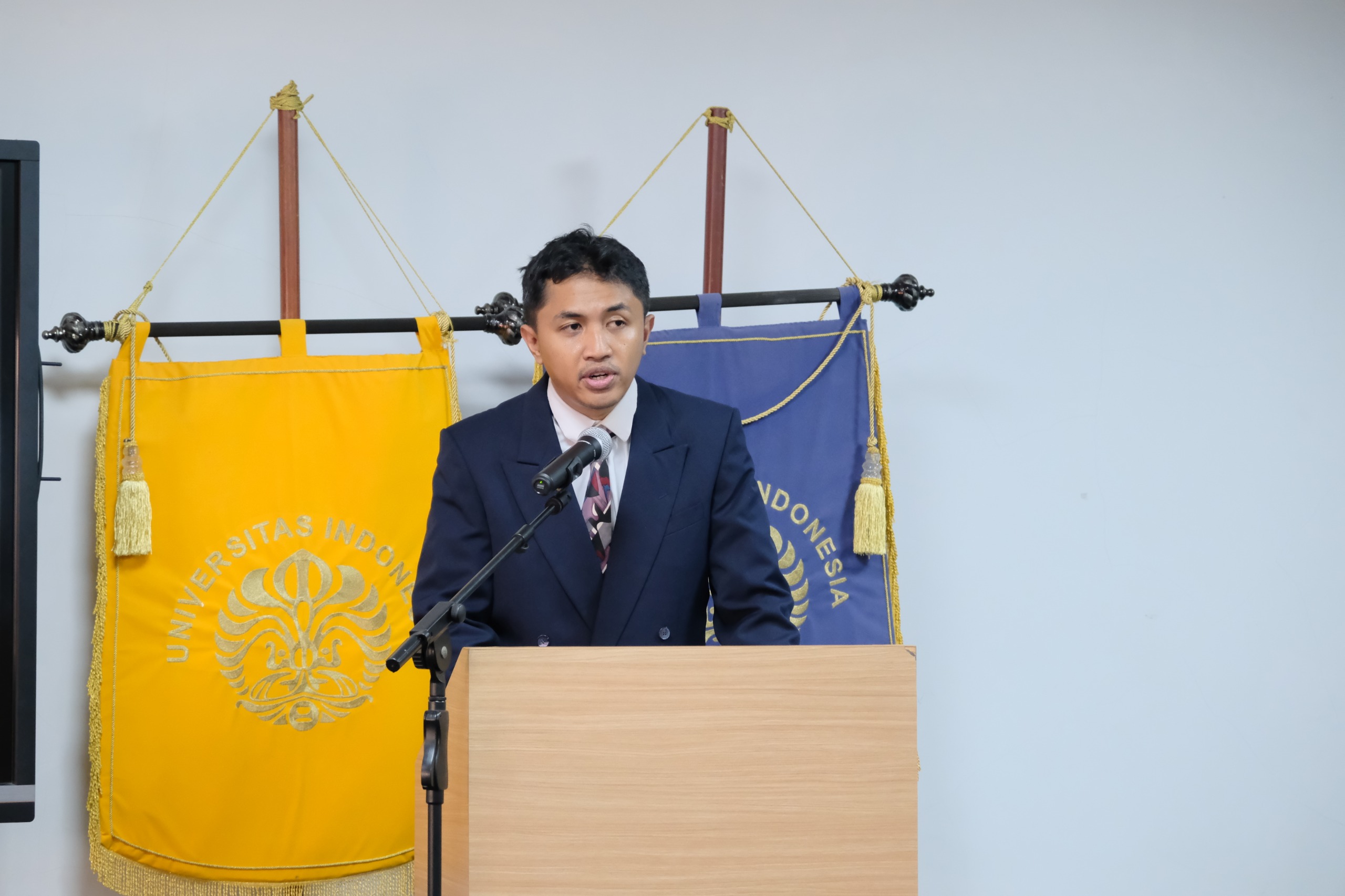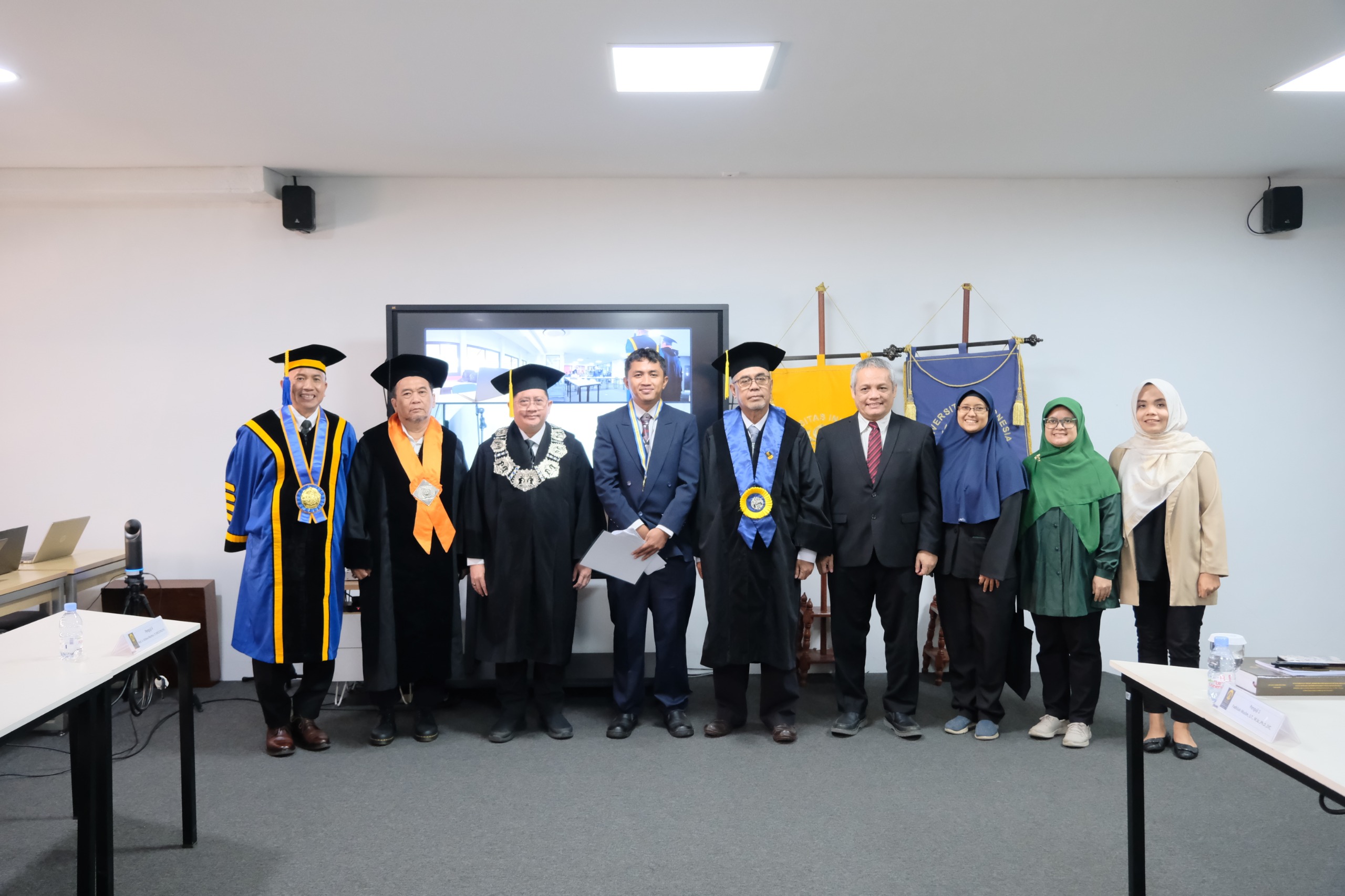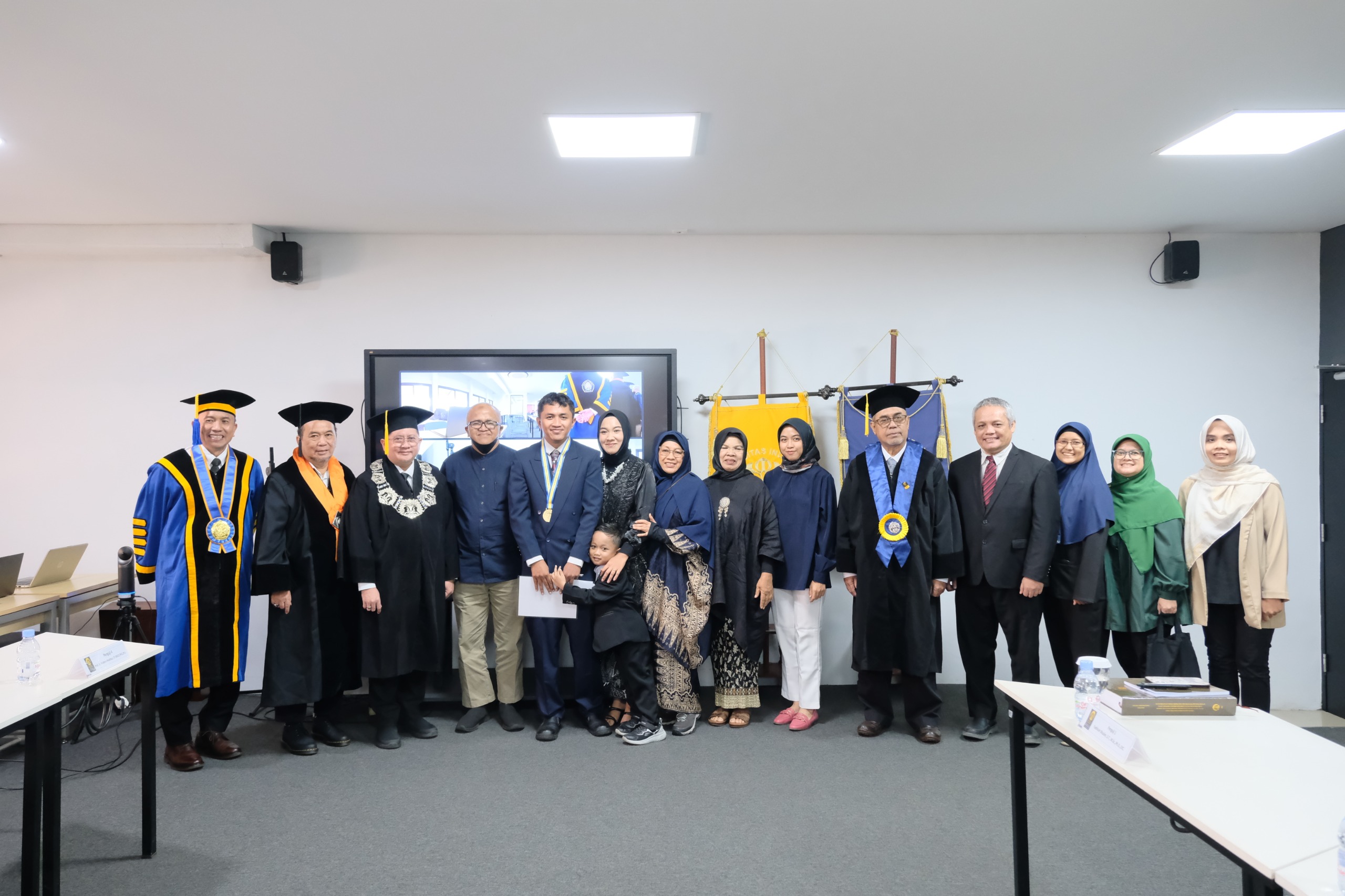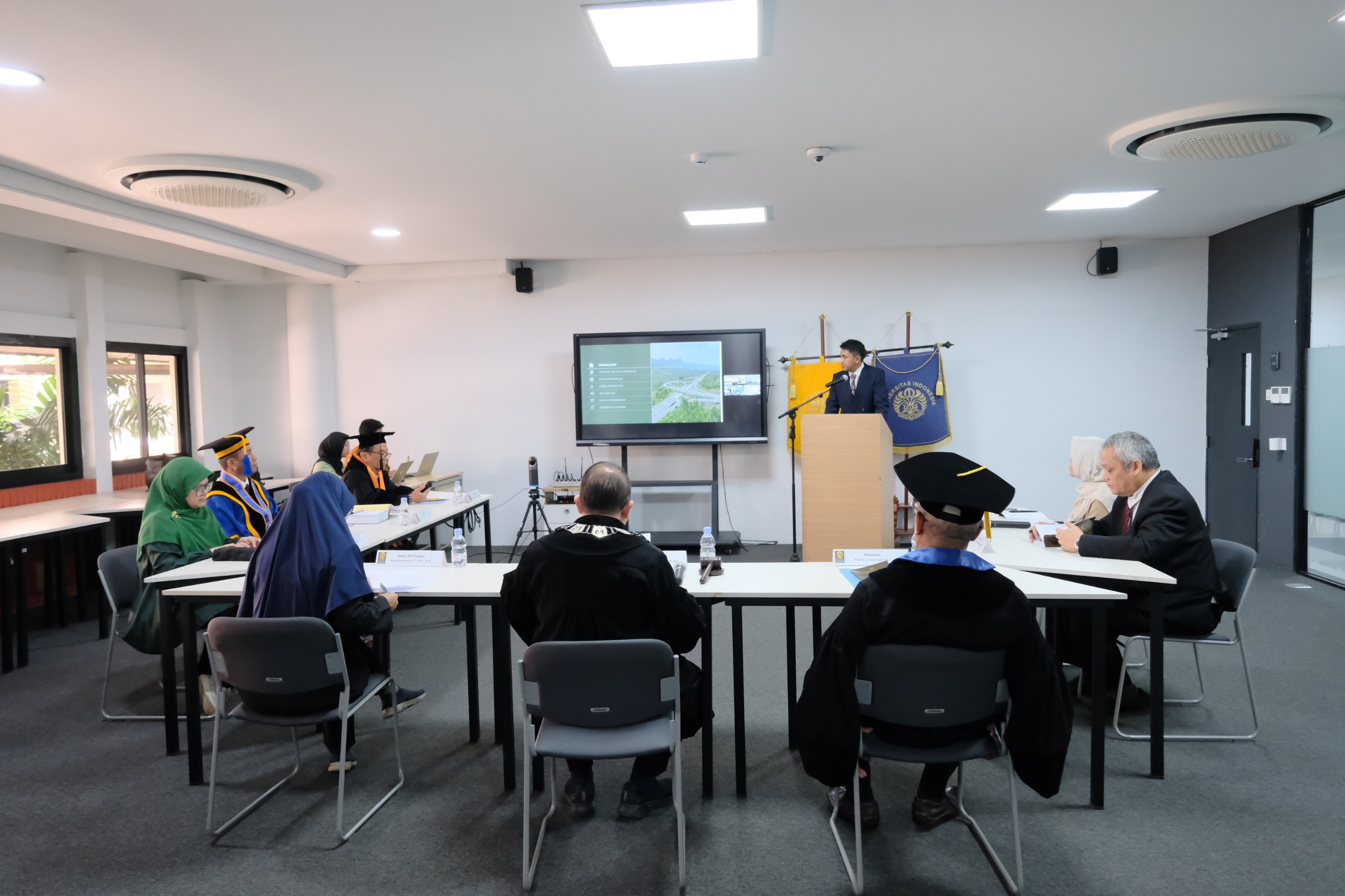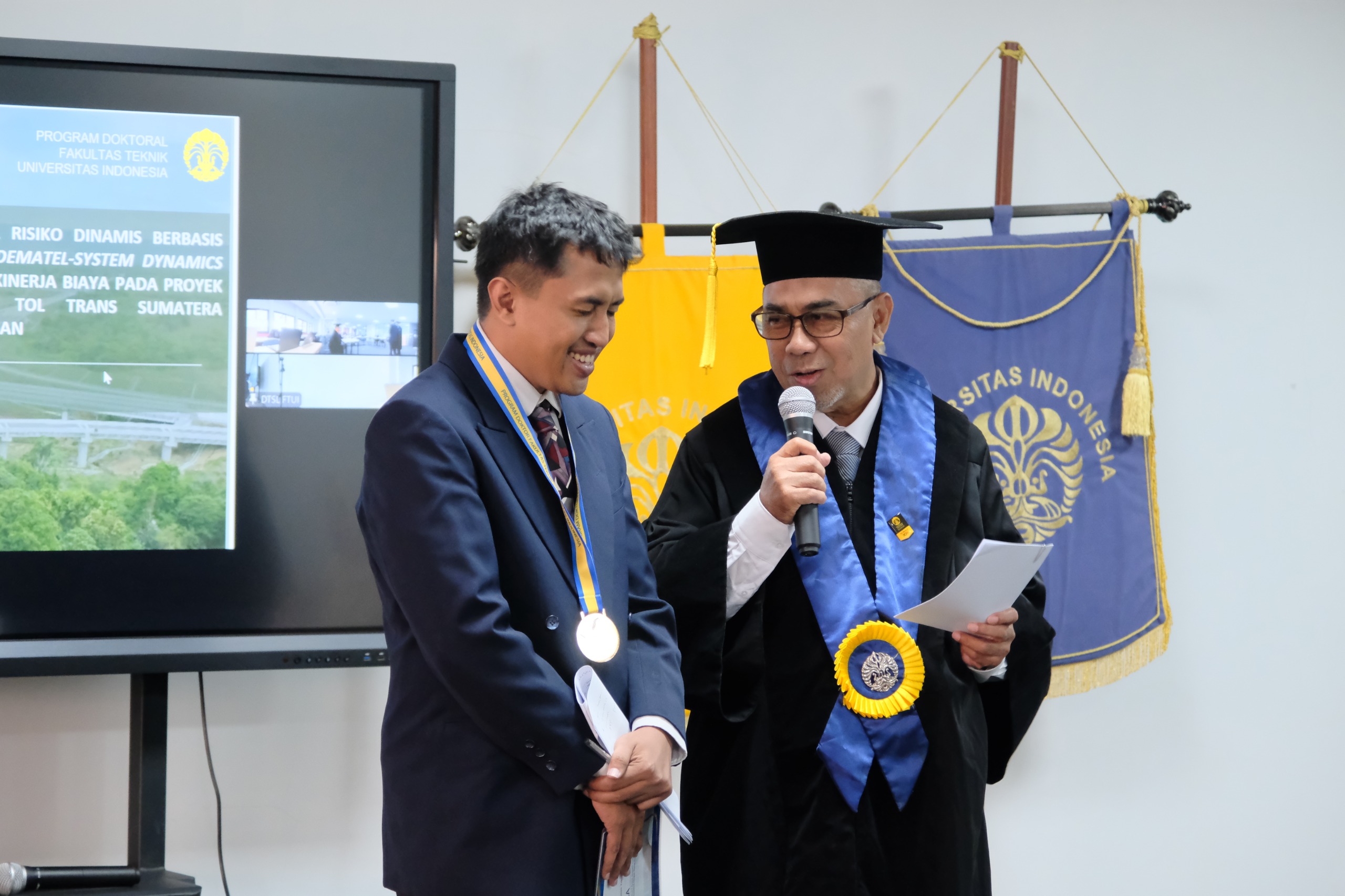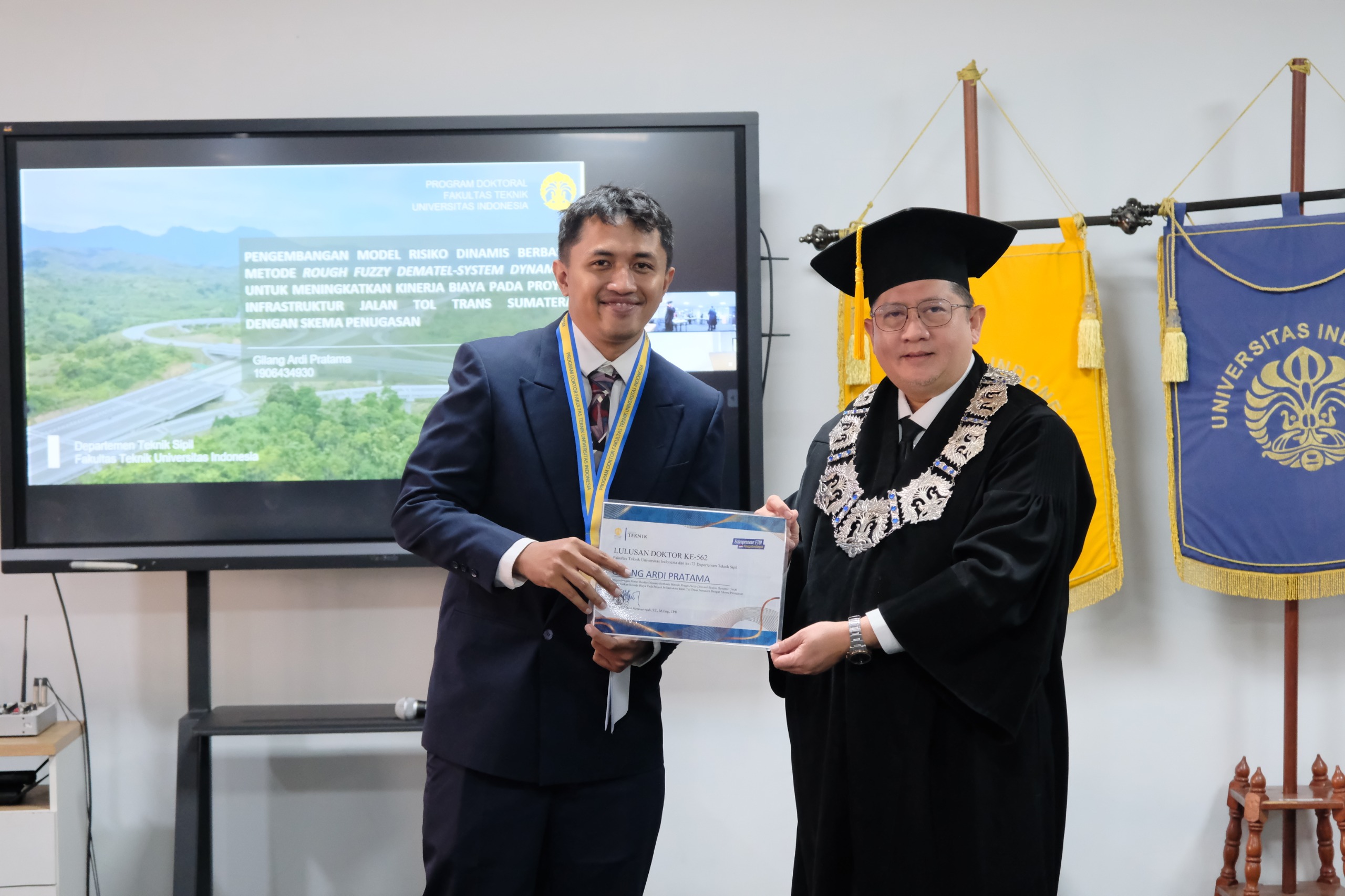Gilang Ardi Pratama, a doctoral candidate in the Civil Engineering program at the Faculty of Engineering Universitas Indonesia (FTUI), successfully defended his dissertation titled “Development of a Dynamic Risk Model Based on the Rough Fuzzy DEMATEL-System Dynamics Method to Improve Cost Performance in Trans Sumatra Toll Road Infrastructure Projects with an Assignment Scheme.” The dissertation was presented during an open doctoral promotion session on Tuesday (10/07), focusing on identifying and analyzing risks affecting the cost performance of the Trans Sumatra toll road construction.
Costs have increased yearly since the realization of the Trans Sumatra toll road construction. In 2019, the project financing reached IDR 169 billion per kilometre; in 2022, it rose to IDR 203 billion per kilometre. This increase is due to the complex and dynamic nature of toll road projects with an assignment scheme. However, in Indonesia, toll road construction risks are still treated as separate entities, necessitating a model that integrates risks into a single system affecting cost performance.
“A total of 38 risk factors were identified in this study using the Rough Fuzzy Delphi method. Through a cause-and-effect diagram, several interrelated risk factors were identified, requiring corrective and preventive actions. By using a system dynamics-based model and the Rough Fuzzy DEMATEL (Decision Making Trial and Evaluation Laboratory) approach, I explored the relationships between risk factors and identified significant patterns in project dynamics,” explained Gilang.
Through the cause-and-effect diagram, Gilang demonstrated that a case study on the Indrapura-Kisaran toll road project shows a potential cost overrun of about 17-20% of the investment cost over 40 years. Therefore, sustainable and adaptive risk management strategies are needed to maintain the project’s financial sustainability. Using a system dynamics-based model with the Rough Fuzzy DEMATEL approach can provide more comprehensive and accurate results compared to existing process-based models.
“The comparison between the process-based model PdT-01-2005-B currently used and the dynamic model based on the Rough Fuzzy DEMATEL and System Dynamics method shows that the dynamic model provides more comprehensive and accurate results. By implementing specific policies targeting the five main risks, it was observed that in the worst-case scenario, risks could be reduced by about 28-31% of the total identified cost risks. This indicates that policies can still play a role in risk mitigation, even in the most challenging and uncertain conditions,” Gilang stated.
Furthermore, Gilang mentioned that the impact of policy implementation is more optimal in the best-case scenario, with policy implementation able to reduce risks by up to 43-46%. This scenario reflects the most positive potential of optimized policy implementation, resulting in a greater impact on addressing risks and strengthening the resilience of the Trans Sumatra toll road construction project.
On a separate occasion, the Dean of FTUI, Prof. Dr. Heri Hermansyah, S.T., M.Eng., IPU, commented on this research, saying, “The dynamic risk model based on the Rough Fuzzy DEMATEL and System Dynamics methods developed by Gilang not only offers comprehensive and innovative solutions to address the challenges in the Trans Sumatra toll road project but also provides new insights into infrastructure project risk management. With these findings, it is expected to help stakeholders, both from the government and private sectors, in identifying and managing risks more effectively.”
The development of the dynamic risk model championed by Gilang earned him the distinction of graduating with a GPA of 3.85 and the predicate of Highly Satisfactory. Gilang is the 73rd Doctor to graduate from the Department of Civil Engineering and the 562nd Doctor from FTUI. The Doctoral Promotion Session was chaired by Prof. Dr. Kemas Ridwan Kurniawan, S.T., M.Sc.; with Promoter, Prof. Dr. Ir. Yusuf Latief, M.T.; and Co-Promoter, Dr. Ir. Lukas Beladi Sihombing, M.T. The examination committee consisted of Ayomi Dita Rarasati, S.T., M.T., Ph.D.; Prof. Ir. Krishna Mochtar, S.T., MSCE, Ph.D., IPU; Prof. M. Agung Wibowo, M.M., M.Sc., Ph.D.; Leni Sagita Riantini, S.T., M.T., Ph.D.; and Fadhilah Muslim, S.T., M.Sc., Ph.D., DIC.
***
Public Communications Office
Faculty of Engineering Universitas Indonesia

